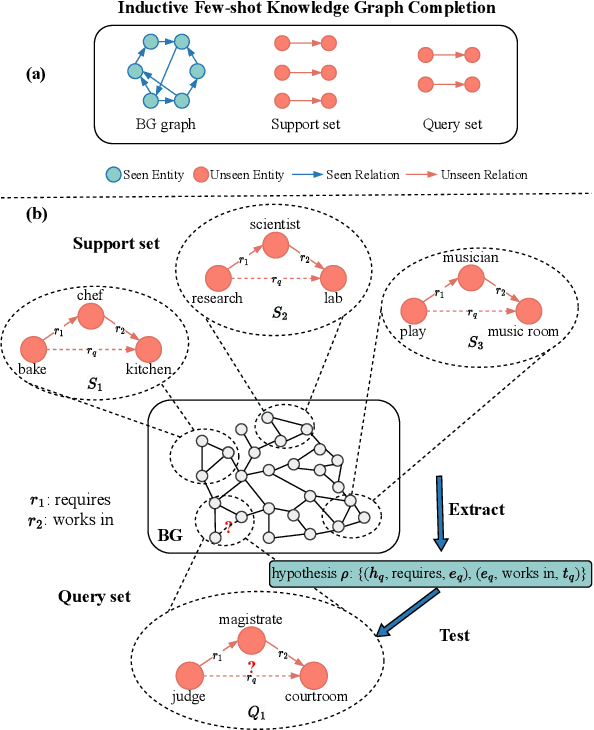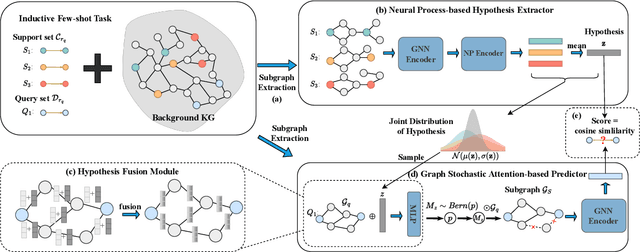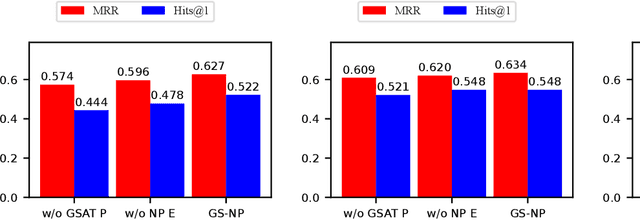Graph Stochastic Neural Process for Inductive Few-shot Knowledge Graph Completion
Paper and Code
Aug 03, 2024



Knowledge graphs (KGs) store enormous facts as relationships between entities. Due to the long-tailed distribution of relations and the incompleteness of KGs, there is growing interest in few-shot knowledge graph completion (FKGC). Existing FKGC methods often assume the existence of all entities in KGs, which may not be practical since new relations and entities can emerge over time. Therefore, we focus on a more challenging task called inductive few-shot knowledge graph completion (I-FKGC), where both relations and entities during the test phase are unknown before. Inspired by the idea of inductive reasoning, we cast I-FKGC as an inductive reasoning problem. Specifically, we propose a novel Graph Stochastic Neural Process approach (GS-NP), which consists of two major modules. In the first module, to obtain a generalized hypothesis (e.g., shared subgraph), we present a neural process-based hypothesis extractor that models the joint distribution of hypothesis, from which we can sample a hypothesis for predictions. In the second module, based on the hypothesis, we propose a graph stochastic attention-based predictor to test if the triple in the query set aligns with the extracted hypothesis. Meanwhile, the predictor can generate an explanatory subgraph identified by the hypothesis. Finally, the training of these two modules is seamlessly combined into a unified objective function, of which the effectiveness is verified by theoretical analyses as well as empirical studies. Extensive experiments on three public datasets demonstrate that our method outperforms existing methods and derives new state-of-the-art performance.
 Add to Chrome
Add to Chrome Add to Firefox
Add to Firefox Add to Edge
Add to Edge